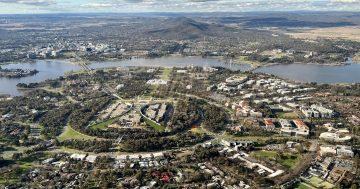
The ACT is on par with the rest of the country, but significant performance gaps remain for Indigenous students. Photo: File.
Once the best-performing jurisdiction in the country, the 2021 NAPLAN results have confirmed a continuing downward trend for ACT students’ numeracy and literacy skills compared with the national benchmark.
Worrying trends at a national level also point to a widening gap between students from advantaged backgrounds and those who are disadvantaged, while the stubborn performance gap remains between Indigenous and non-Indigenous students.
Since 2016, when the ACT last topped the nation in reading, grammar and punctuation, the Territory’s results have slowly slipped backwards.
Australian Curriculum Assessment and Reporting Authority (ACARA’s) standardised testing covers 20 data sets – the subjects of Reading, Writing, Spelling, Grammar and Punctuation, and Numeracy for Year 3, Year 5, Year 7 and Year 9 students.
In the 2021 results, the ACT did not top a single category where unbiased data and results could be ensured, while in three-quarters of the data subsets, the ACT recorded a mean score that fell below the national benchmark.
For the most part, however, the ACT did not score the lowest and was instead somewhere in the middle of the pack.
Opposition spokesperson for education Jeremy Hanson said relative to other demographically similar populations, ACT students have been chronically underperforming for years and the “latest NAPLAN results just highlight the problem”.
“Disappointingly, socially disadvantaged children, including Indigenous students, are again falling behind,” Mr Hanson said.
He’s called for an independent review of the education system since 2018.
An independent review by the Grattan Institute in 2018 found the ACT was actually the country’s worst performer when social and economic advantage was taken into account.
At a national level, yesterday’s (16 December) final 2021 NAPLAN report has shown the pandemic and a switch to remote learning amid lockdowns hasn’t yet impacted students’ literacy and numeracy skills.
However, early indications from the data show that the gap between high and low socio-educational groups does seem to be widening, ACARA CEO David de Carvalho said.
Students whose parents did not complete Year 12 were more likely to be those who fell behind the national average, the report showed.
Across the country, in Year 3 Literacy results, there’s already a two-years-and-four-months learning gap between advantaged and disadvantaged students. By Year 9, this gap grows to five years and one month.
Minister for Education Yvette Berry said this trend had not been recorded in the ACT, where “the equity gap for ACT public school students across all NAPLAN year levels for both reading and numeracy for students has closed slightly in 2021”.
However, she noted that the gap would need to narrow to have a positive effect on less-advantaged students.
Nationwide, significant performance gaps remain between Indigenous and non-Indigenous students and those whose parents have a tertiary education compared with those who have not.
Ms Berry said several key programs are currently underway in ACT public schools, including programs such as the Early Literacy Practices, the Middle Years Mental Computation, and the Count Me In Too program.
Analysis of the 2021 results has also shown that the difference in achievement between Indigenous and non-Indigenous students remains stubbornly large. The performance gap has remained stable since 2016, but there’s been little change since 2008.
The gap between students in rural areas and those in the city also continues to widen.
Minister for Education Yvette Berry has repeatedly pushed for reform of the NAPLAN system which she said creates anxiety for students and teachers and can stigmatise lower-performing schools.
“I am especially concerned about NAPLAN reporting, which tends to lead to competition between jurisdictions and schools that is unhelpful and leads parents to see NAPLAN testing as a high stakes test, which it isn’t,” Ms Berry said.
Only last year, Ms Berry claimed the NAPLAN data made ACT students look as though they were underperforming when that was not actually the case.
The ACT, along with NSW, Victoria and Queensland, has previously commissioned an independent review into NAPLAN. The review made several recommendations, including that the test be conducted “as early as possible” in the school year, that it be changed to Year 10 from Year 9 and that a new STEM test be added.
“There are things we can to do improve on NAPLAN,” Ms Berry said.
ACARA has yet to respond to the findings of this report.
Original Article published by Lottie Twyford on Riotact.






